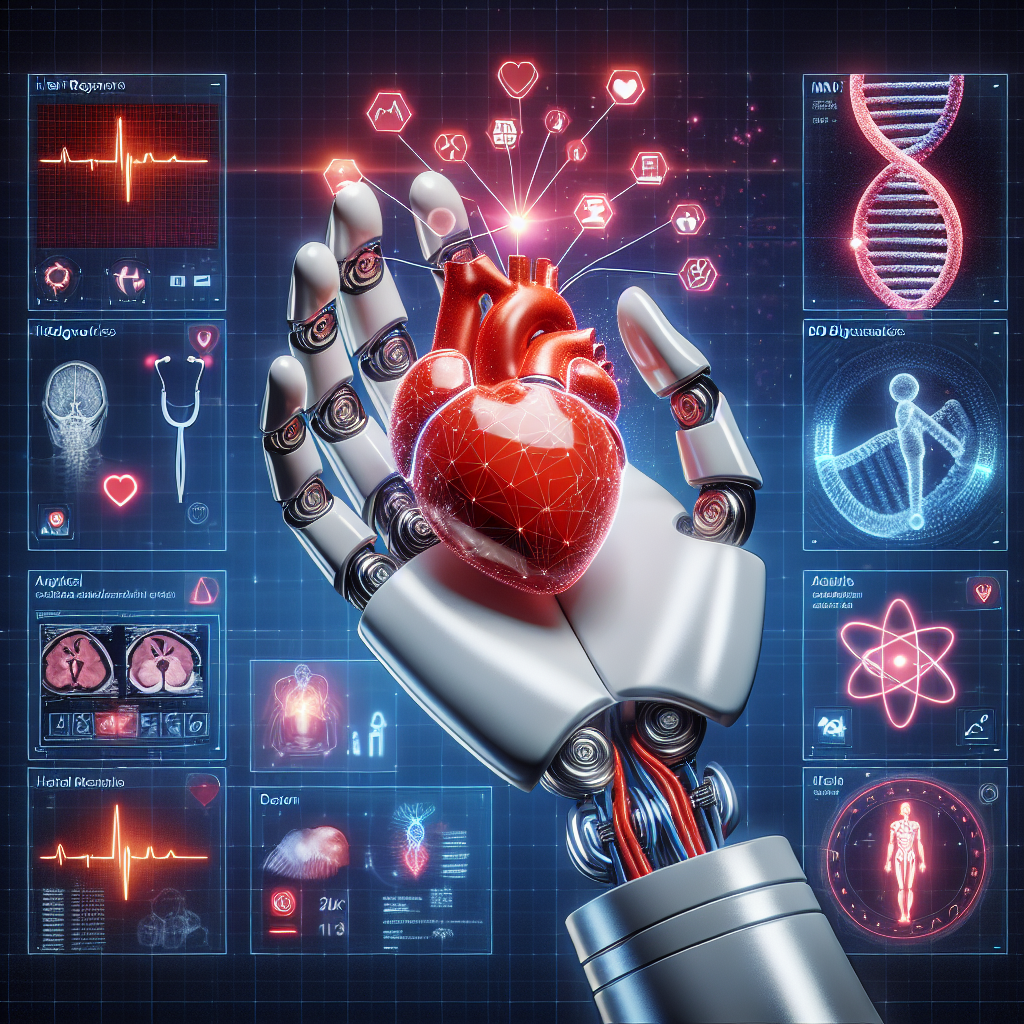Artificial Intelligence (AI) has the potential to revolutionize the healthcare industry, particularly in the areas of diagnostics and treatment. AI technologies can analyze vast amounts of data quickly and accurately, leading to more precise diagnoses and personalized treatment plans for patients. In this article, we will explore the current state of AI development in healthcare, its benefits and challenges, and how it is improving diagnostics and treatment.
Current State of AI Development in Healthcare
AI development in healthcare has been steadily growing over the past few years, with various applications being developed to assist healthcare professionals in their daily tasks. One of the key areas where AI is making a significant impact is in diagnostics. AI algorithms are being used to analyze medical imaging, such as X-rays, MRIs, and CT scans, to detect abnormalities and assist in the diagnosis of various conditions.
For example, a study published in the journal Nature Medicine found that an AI system was able to detect breast cancer in mammograms with a similar level of accuracy as radiologists. This technology has the potential to improve early detection rates and save lives.
In addition to diagnostics, AI is also being used to develop personalized treatment plans for patients. By analyzing patient data, such as genetic information, medical history, and lifestyle factors, AI algorithms can recommend the most effective treatment options for each individual. This can lead to better outcomes and reduced side effects for patients.
Benefits of AI in Healthcare
There are several benefits of AI development in healthcare, including:
– Improved accuracy: AI algorithms can analyze data more quickly and accurately than humans, leading to more precise diagnoses and treatment plans.
– Faster results: AI can process vast amounts of data in a fraction of the time it would take a human, leading to faster results and more efficient healthcare delivery.
– Personalized treatment: By analyzing individual patient data, AI can recommend personalized treatment plans that are tailored to each patient’s unique needs.
– Cost savings: AI technologies have the potential to reduce healthcare costs by improving efficiency and reducing unnecessary tests and treatments.
Challenges of AI in Healthcare
While the potential benefits of AI in healthcare are clear, there are also several challenges that need to be addressed. Some of the key challenges include:
– Data privacy and security: AI algorithms rely on vast amounts of data to make accurate predictions, raising concerns about patient privacy and data security.
– Regulatory approval: AI technologies need to undergo rigorous testing and regulatory approval before they can be used in clinical practice, which can be a lengthy and costly process.
– Bias and fairness: AI algorithms can inadvertently perpetuate biases in healthcare, such as racial or gender disparities in treatment recommendations.
– Lack of transparency: Some AI algorithms are seen as “black boxes” that make decisions without explanation, raising concerns about accountability and trust.
How AI is Improving Diagnostics and Treatment
Despite these challenges, AI is already making a significant impact on diagnostics and treatment in healthcare. Some of the ways in which AI is improving these areas include:
– Early detection: AI algorithms can analyze medical imaging and other data to detect abnormalities at an earlier stage, leading to earlier treatment and improved outcomes.
– Precision medicine: By analyzing individual patient data, AI can recommend personalized treatment plans that are tailored to each patient’s unique needs, leading to more effective treatment and reduced side effects.
– Drug discovery: AI technologies are being used to analyze vast amounts of data to identify potential drug candidates and accelerate the drug discovery process.
– Remote monitoring: AI-powered devices and apps can monitor patients’ health remotely and alert healthcare providers to any changes or abnormalities, leading to earlier intervention and better outcomes.
FAQs
Q: How does AI improve diagnostic accuracy in healthcare?
A: AI algorithms can analyze vast amounts of data quickly and accurately, leading to more precise diagnoses and early detection of abnormalities.
Q: What are some examples of AI applications in healthcare?
A: Some examples of AI applications in healthcare include medical imaging analysis, personalized treatment recommendations, drug discovery, and remote monitoring.
Q: How can AI help reduce healthcare costs?
A: AI technologies have the potential to improve efficiency, reduce unnecessary tests and treatments, and optimize resource allocation, leading to cost savings in healthcare.
Q: What are some of the challenges of AI in healthcare?
A: Some of the key challenges of AI in healthcare include data privacy and security concerns, regulatory approval, biases and fairness issues, and lack of transparency in decision-making.
In conclusion, AI development in healthcare is poised to revolutionize the industry by improving diagnostics and treatment. While there are challenges that need to be addressed, the potential benefits of AI in healthcare are vast, including improved accuracy, faster results, personalized treatment, and cost savings. As AI technologies continue to advance, we can expect to see even greater improvements in patient care and outcomes in the coming years.

